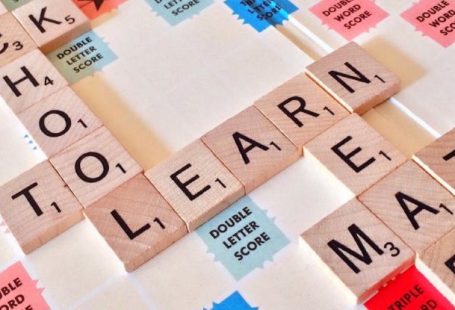In today’s digital era, students are increasingly turning to educational apps to enhance their learning experience. With the rise of technology and the convenience it offers, many wonder if these apps can actually improve study habits. The integration of educational apps into daily study routines is becoming more common, but are they truly beneficial in helping students learn and retain information more effectively? Let’s delve into the potential benefits and drawbacks of using educational apps to improve study habits.
**Engaging and Interactive Learning**
Educational apps provide a dynamic and interactive way for students to engage with study material. Unlike traditional textbooks, these apps often incorporate multimedia elements such as videos, animations, and interactive quizzes to make learning more engaging. This interactive approach can help students stay focused and interested in the subject matter, ultimately improving their study habits. By offering a variety of learning activities, educational apps cater to different learning styles and preferences, making it easier for students to grasp and retain information.
**Personalized Learning Experience**
One of the key advantages of educational apps is the ability to personalize the learning experience for each student. Many apps utilize algorithms to track a student’s progress and adapt the content to suit their individual needs. This personalized approach ensures that students receive targeted assistance in areas where they may be struggling, ultimately improving their understanding of the material. By tailoring the learning experience to each student’s strengths and weaknesses, educational apps can help students develop more effective study habits and achieve better academic outcomes.
**Flexibility and Accessibility**
Educational apps offer students the flexibility to study anytime, anywhere. With the convenience of accessing study material on smartphones, tablets, or laptops, students can fit in quick study sessions during downtime or on the go. This accessibility eliminates the need to carry around heavy textbooks and allows students to study at their own pace. By providing a flexible learning environment, educational apps empower students to take control of their study habits and make learning a seamless part of their daily routine.
**Track Progress and Set Goals**
Many educational apps come equipped with features that allow students to track their progress and set goals. By monitoring their performance over time, students can identify areas for improvement and track their academic growth. Setting goals within the app can help students stay motivated and focused on their studies, encouraging them to develop a consistent study routine. The ability to visualize progress and achievements can be a powerful motivator for students, driving them to continue improving their study habits and academic performance.
**Collaborative Learning Opportunities**
Some educational apps offer collaborative features that enable students to study together and engage in group discussions. This collaborative learning environment fosters teamwork and communication skills, allowing students to share ideas and insights with their peers. By collaborating with others through the app, students can gain different perspectives on the material and enhance their understanding through active discussion. This social aspect of educational apps can help students develop effective study habits by encouraging peer-to-peer learning and collaboration.
**Enhanced Study Tools and Resources**
Educational apps provide a wealth of study tools and resources that can support students in their learning journey. From digital flashcards and study guides to practice quizzes and video tutorials, these apps offer a variety of resources to help students reinforce their understanding of the material. By utilizing these study tools, students can supplement their learning and engage with the material in different ways. The availability of diverse resources within educational apps can cater to students with varying learning preferences, allowing them to choose the study methods that work best for them.
**Incorporating Educational Apps into Study Habits**
While educational apps offer numerous benefits for improving study habits, it is important for students to use them effectively. To maximize the potential of educational apps, students should integrate them strategically into their study routines and establish a consistent schedule for using them. Setting specific goals and objectives for using the app can help students stay on track and make the most of its features. Additionally, students should actively engage with the material presented in the app and seek clarification or additional support when needed.
**Embracing Technology for Enhanced Learning**
In conclusion, educational apps have the potential to improve study habits by offering engaging and personalized learning experiences, fostering collaboration, and providing access to a wealth of study resources. By leveraging the benefits of educational apps, students can enhance their study routines, track progress, and achieve academic success. As technology continues to evolve, incorporating educational apps into study habits can empower students to become more effective learners and reach their full academic potential. By embracing technology as a tool for enhanced learning, students can cultivate strong study habits that will serve them well in their academic endeavors.





